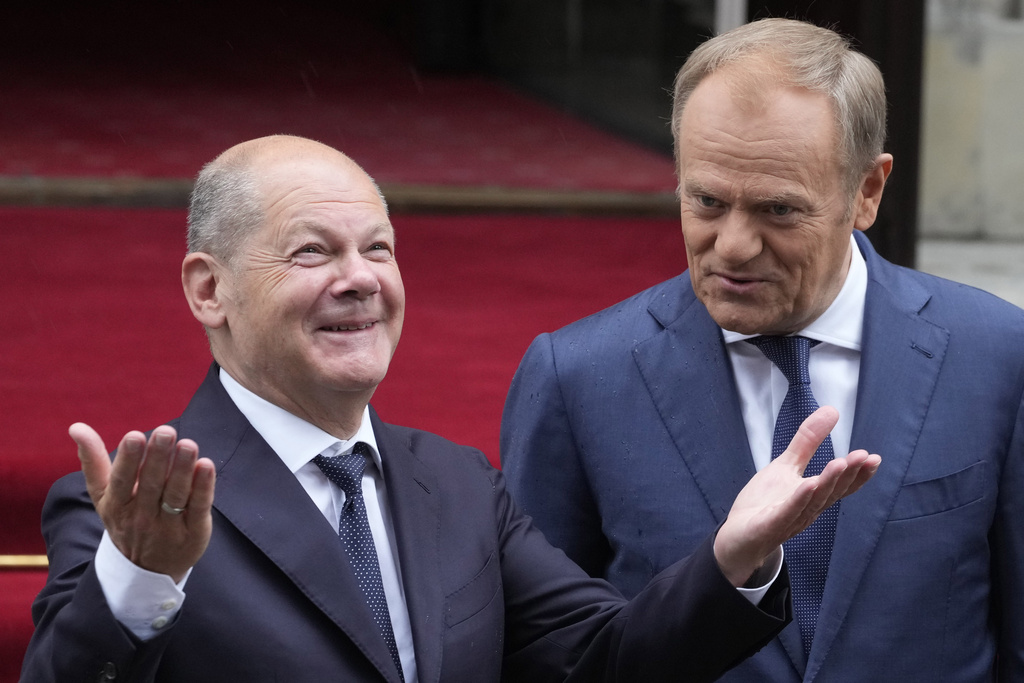The World War II reparations case shines a glaring light on the true status of Poland’s current government in relation to Berlin. Far from being an equal partnership, it resembles more of a submissive relationship.
What has Chancellor Olaf Scholz brought to the table regarding reparations? An offer to construct a “Polish-German house” — an old proposal that has been lying dormant for years and has been diluted by Berlin. Initially, this was primarily about building a monument, a visible, unequivocal tribute to Polish victims. However, that will not happen. Instead, there will be a vaguely defined center, likely to become a venue for diminishing German responsibility and possibly “sharing the blame” with Poles and Poland.
The second German proposal involves offering aid to the living victims of World War II. It is delayed, vague, unhurried, and in reality, changes nothing. This generation has mostly passed away, leaving only a few survivors.
Today, only serious proposals directed at contemporary Poland and its citizens can truly close the reparations issue.
While the German chancellor looks after German interests, what is the Polish prime minister doing? He declares that he is “not disappointed in the least by the proposal and the good gesture from the German government because there are no gestures that would satisfy the Poles or any amount of money that could balance what happened during World War II.”
This sounds like a poor joke: If no amount of money can compensate for the wrongs, then why demand anything at all? It’s absurd and embarrassing. If we were to follow such logic, no compensation for traffic accidents or crimes would ever be paid.
There are reports on reparations from professional teams. Specific amounts have been calculated, and these must be demanded. Tusk has given up on these demands in exchange for empty gestures, carelessly and sloppily made on the fly. Chancellor Scholz knows he has the upper hand; he has won the battle for Poland against the independent-minded PiS government.
But not only did Tusk get nothing. He is offering Berlin a priceless gift: acceptance of the false thesis that Poland has effectively renounced its claim to reparations.
He said: “In legal terms, the problem of reparations has been described in decisions and government treaties, but one can draw various conclusions about what that really means. For me, it is important that today I heard statements and declarations that confirm the widespread belief in Poland that the historically forced renunciation of reparations does not change the fact of the tragic losses in people, property, and territory Poland suffered due to Germany’s aggression.”
This is simply not true.
Another quote from Tusk:
“If today, we hear that Germany, not in the context of reparations, is ready to make decisions that can compensate those who were direct victims of the war, (…) that Germany is ready to take co-responsibility for the continent’s security, looking forward to the future, that would be the most credible action for me (…), these are steps and signals in the right direction. However, whether this in any way compensates for the losses Poland suffered during World War II, of course, it does not.”
Thus, there will be no reparations, but Germany will assume leadership in Europe, and Poland will be thanking them.
Poland has not been so profoundly humiliated in a long time as it was today during the joint conference of Tusk and Scholz. However, this is not the end of the matter. A free Poland will raise this issue again.






